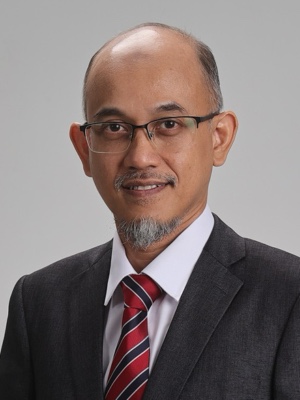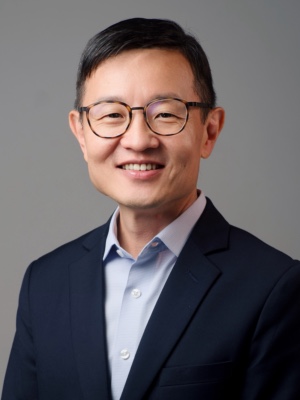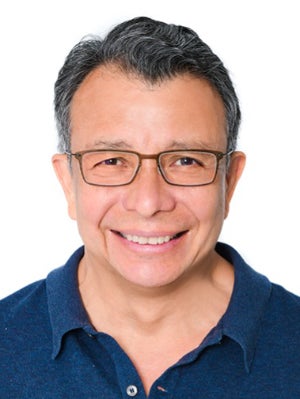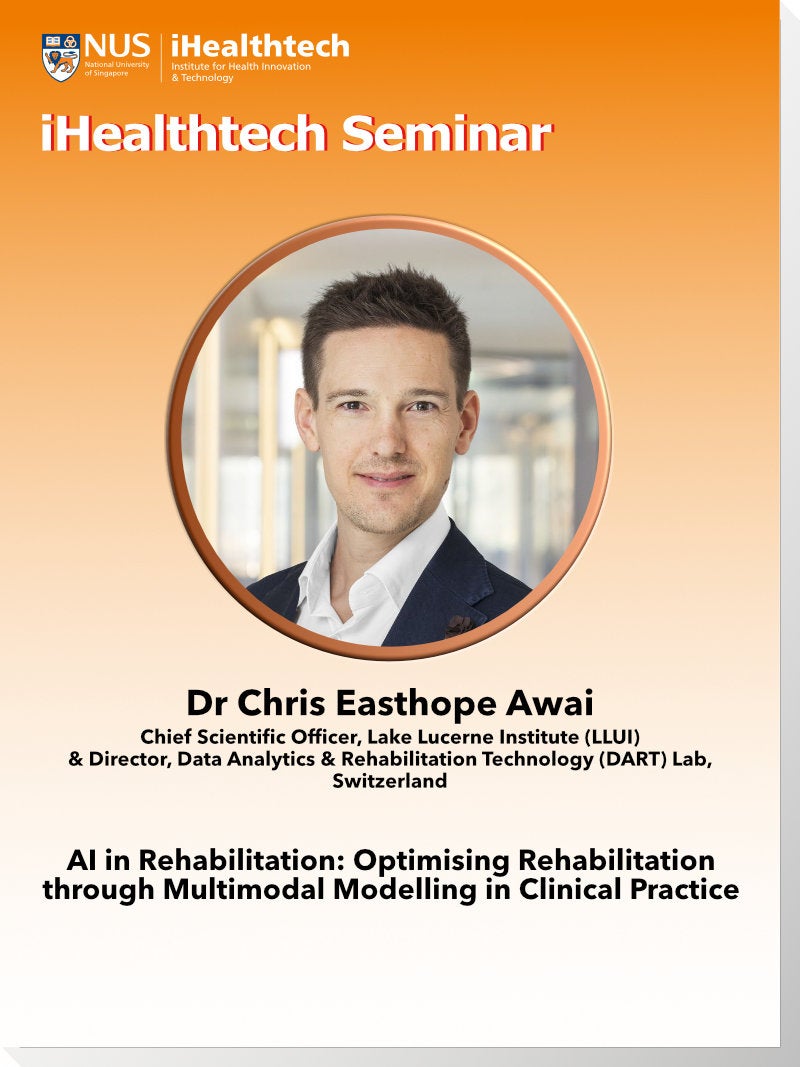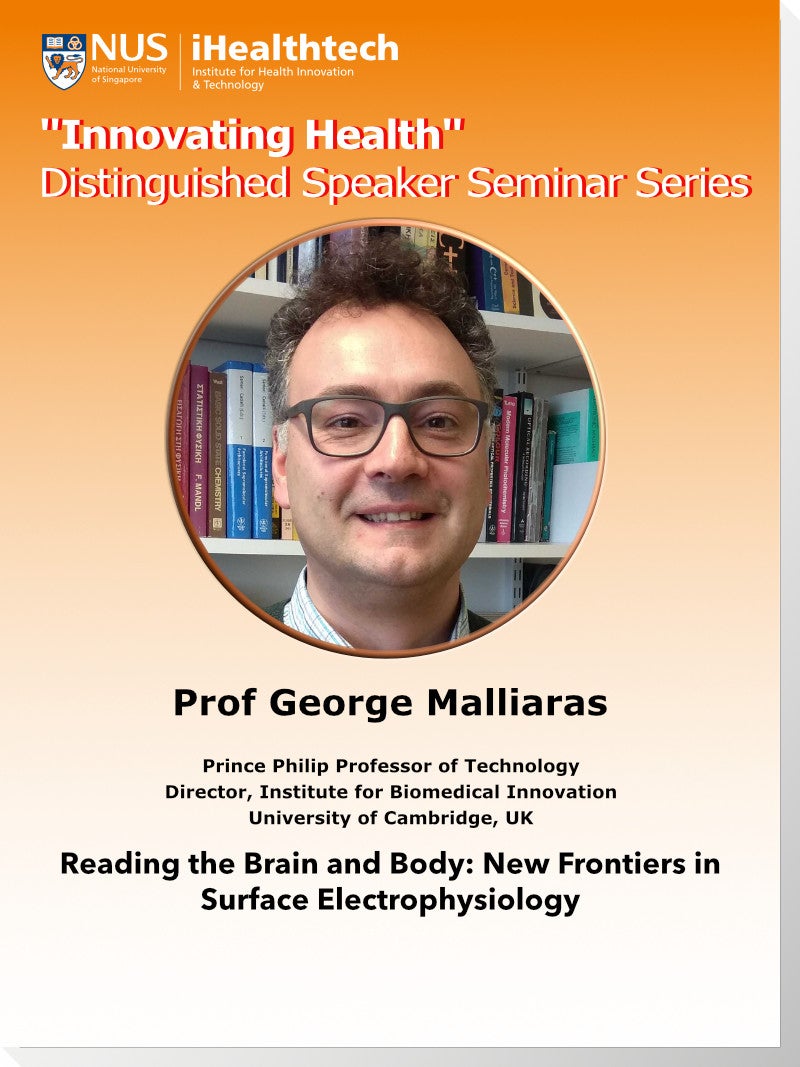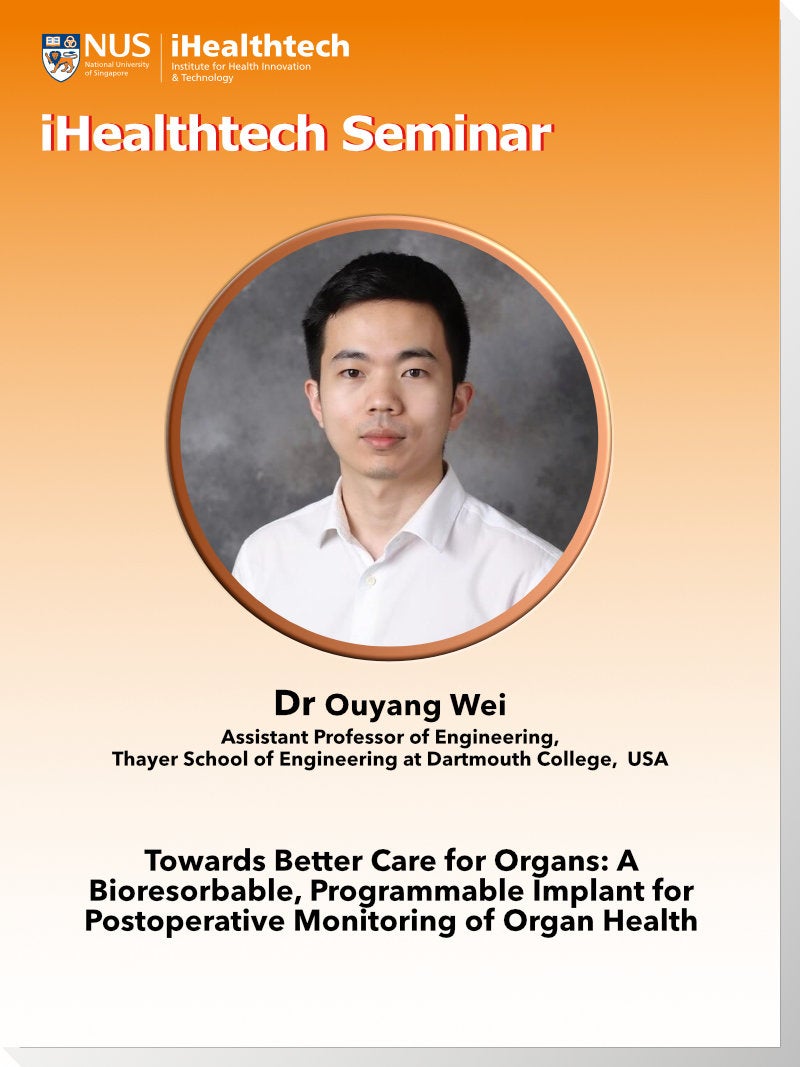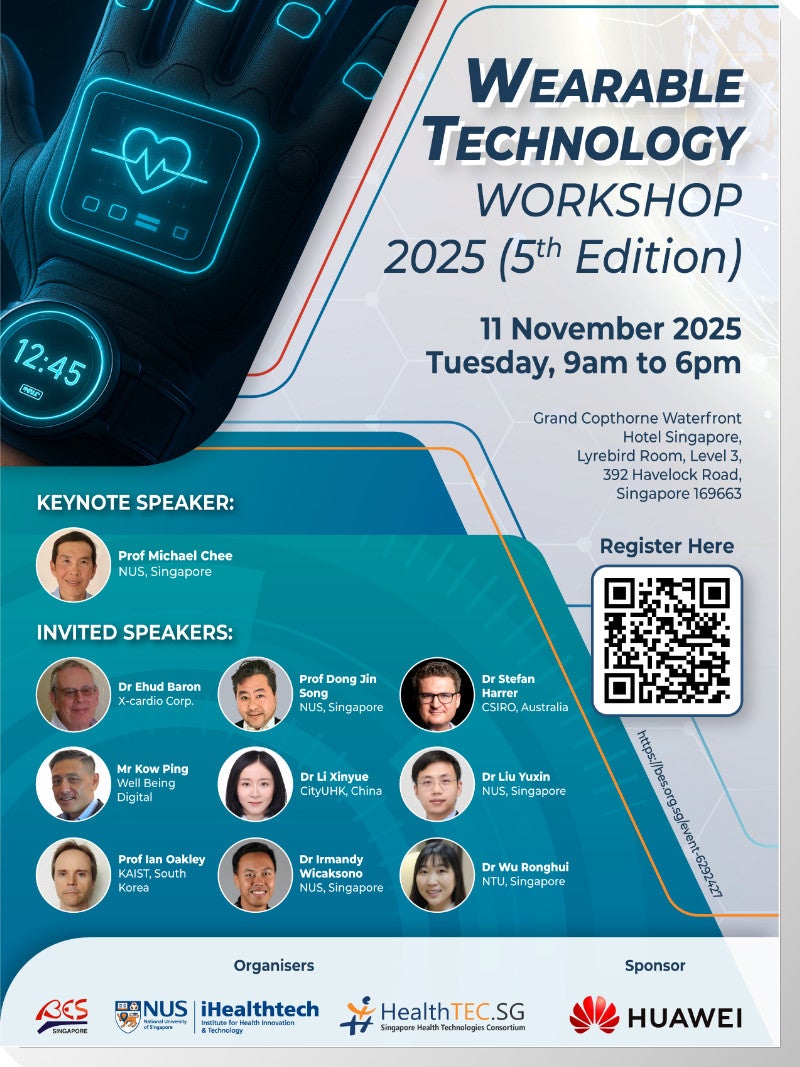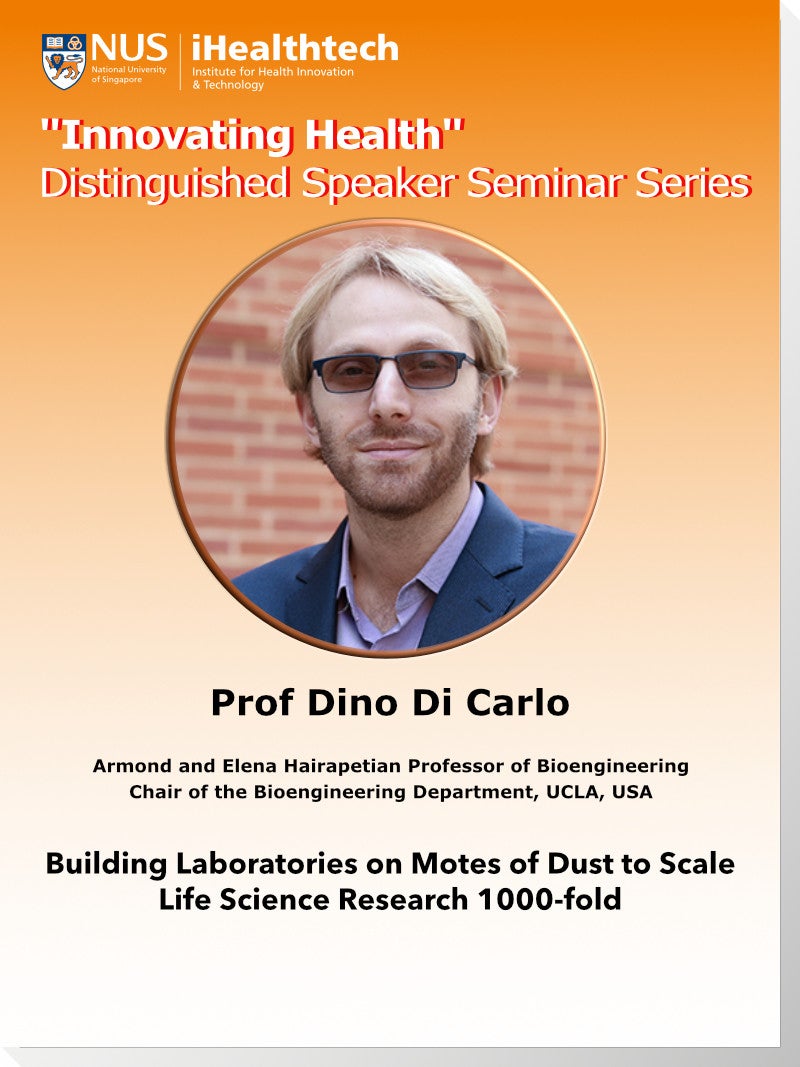UM-NUS Joint Workshop on Biomedical Engineering 2024
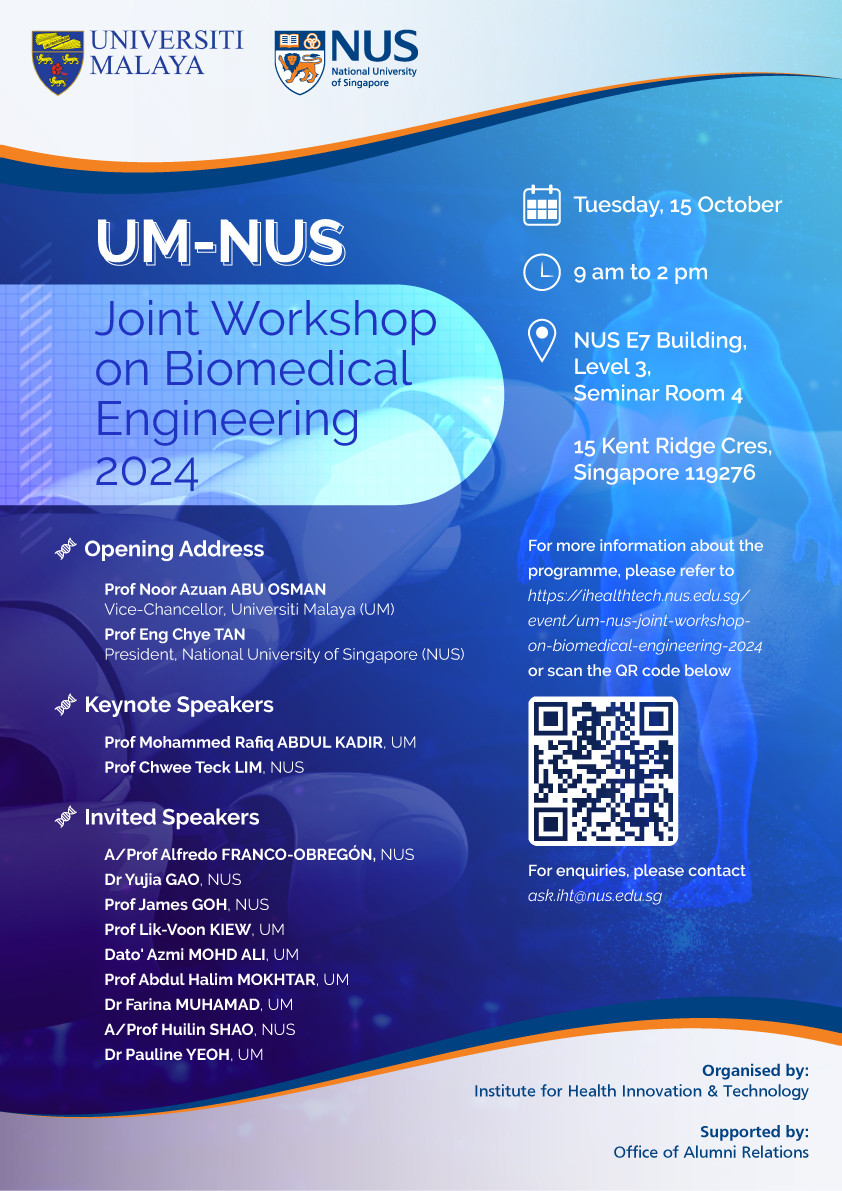 |
The inaugural UM-NUS Joint Workshop on Biomedical Engineering 2024 aims to celebrate and strengthen the long-standing friendship between Universiti Malaya and the National University of Singapore. It fosters scientific dialogue among researchers, educators, and scholars from both universities, focusing on innovative ideas that can make a significant societal impact. The workshop will focus on advancements in biomedical engineering and technologies with the aim of advancing health in both countries.
For any enquiries about the workshop, please email ask.iht@nus.edu.sg.
🗓15 October 2024
📍NUS, College of Design and Engineering, E7 Engineering in Medicine Building, Level 3, Seminar Rooms 4 [Map]
🖋️Registration: [This workshop is by invitation only]
PAGE CONTENT
- Speakers
- Scientific Programme
- Titles, Abstracts and Speaker Bios
OPENING ADDRESS*
Prof Noor Azuan ABU OSMAN, Vice-Chancellor, Universiti Malaya (UM)
Prof Eng Chye TAN, President, National University of Singapore (NUS)
KEYNOTE SPEAKERS*
Prof Mohammed Rafid ABDUL KADIR, UM
Prof Chwee Teck LIM, NUS
INVITED SPEAKERS*
A/Prof Alfredo FRANCO-OBREGÓN, NUS
Dr Yujia GAO, NUS
Prof James GOH, NUS
Prof Lik-Voon KIEW, UM
Prof Dr Abdul Halim MOKHTAR, UM
Dr Farina MUHAMAD, UM
A/Prof Huilin SHAO, NUS
Dr Pauline YEOH, UM
*Names are arranged in alphabetic order of last names.
|
Time (SGT) |
15 Oct, Tuesday |
|
08:55 |
Group Photo (UM/NUS Presidents and Speakers) |
|
09:00 – 09:05 |
Opening Address by |
|
09:05 – 09:10 |
Opening Address by |
|
09:10 – 09:15 |
A Short Video Intro to NUS |
|
09:15 – 09:20 |
A Short Video Intro to UM |
|
Keynote Session |
|
|
9:20 – 9:40 |
Keynote Talk 1 |
|
9:40 – 10:00 |
Keynote Talk 2 |
|
10:00 – 10:30 |
Coffee Break |
|
Invited Talks |
|
|
10:30 – 10:45 |
Invited Talk 1 |
|
10:45 – 11:00 |
Invited Talk 2 |
|
11:00 – 11:15 |
Invited Talk 3 |
|
11:15 – 11:30 |
Invited Talk 4 |
|
11:30 – 11:45 |
Invited Talk 5 |
|
11:45 – 12:00 |
Invited Talk 6 |
|
12:00 – 12:15 |
Invited Talk 7 |
|
12:15 – 12:30 |
Invited Talk 8 |
|
12:30 – 13:30 |
Lunch |
|
13:30 – 14:30 |
Tour of iHealthtech at E7
(by invitation only)
|
|
Industrial Revolutions and the Healthcare System Biography
|
|
|
|
|
Advancing Healthcare through Technological Innovation and AI Biography |
|
|
||
|
Magnetic Mitohormesis: A Potential Paradigm Shift in Modern Clinical Medicine Biography Professor Alfredo Franco-Obregón is also the founder of QuantumTx Pte. Ltd., a NUS spin-off company, whose aim is to design and fabricate for commercialisation magnetic therapeutic devices for human rehabilitation and regenerative therapies. QuantumTx was awarded the Innovation of the Year Product Winner by the Ageing Asia World Ageing Festival in 2020 and Startup of the Year in 2024. |
||
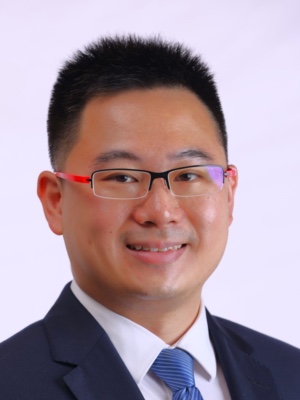
Future of Surgical Imaging and Navigation: Mixed Reality to Digital Twins
The future of surgical imaging aims to improve the understanding and appreciation of patient anatomy by incorporating technology to enhance traditional imaging modalities. The use of Holomedicine and Mixed Reality, coupled with patient-specific organ digital twins provides a glimpse into what’s possible using artificial intelligence and spatial AI.
Biography
Dr Gao Yujia is a Consultant Surgeon in Liver, Pancreas, and Liver Transplant Surgery at the National University Hospital in Singapore. As the Assistant Group Chief Technology Officer for the National University Health System, Dr Gao is involved in the research and development of immersive technology and its application in clinical care and education, and digital-twin projects. He works extensively with Mixed Reality (MR) technology, utilising MR devices to deliver cutting edge capabilities to clinicians including 3D holographic imaging, real-time computer-vision based imaged analysis, and multisource data integration. He is also responsible for the integration and implementation of 5G wireless technology for hospital infrastructure development and building of secured high-speed integrated data networks. He also serves as the Vice-Chairman of the international Holomedicine Association.
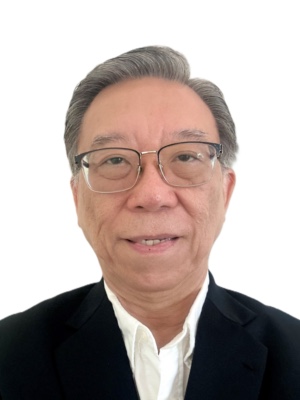
Silk-based Solutions for Tissue Engineering Applications
Innovative approaches to the field of tissue engineering and regenerative medicine have drawn inspiration from nature, including development of strategies and design parameters for scaffold materials and architectures for specific tissues. One natural material, silk fibroin has shown to be an excellent example due to its unique molecular and supra-molecular structure, its customizable ligands-based bioactivity, its ability to self-assemble and being manipulated into various forms and structures. There exists an array of techniques to process silk fibroin into various forms with tailored mechanical and biological properties, to provide the necessary cellular, architectural, and chemical cues for the specific tissue types. The material can be processed into powders, films, gels, sponges, foams, yarns, knitted and woven mats for various interesting tissue engineering applications.
Biography
Professor Goh obtained his PhD in Bioengineering (1982) from the University of Strathclyde, Glasgow, UK. He was the Head, NUS Department of Biomedical Engineering from 2010 to 2019. He is the Immediate Past-President of IUPESM and was President of IFMBE (2015-2018). He is the current President of the Biomedical Engineering Society (Singapore). He is a Fellow of several prestigious fraternities, such as AIMBE and IAMBE. In 2022, he was awarded the IUPESM Merit Award for his outstanding contribution to global promotion of Biomedical Engineering. Prof Goh has been actively involved in organizing international conferences and has served on numerous International Advisory Boards and Scientific Committees. He has given numerous invited talks at conferences, published extensively in the field of musculoskeletal biomechanics and tissue engineering.
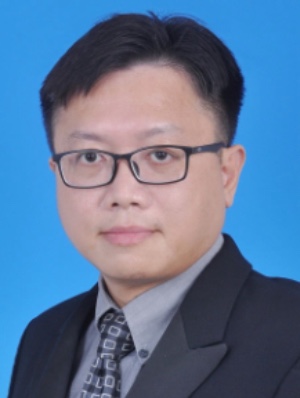
Electrochemical Impedance Spectroscopy (EIS)-based Biosensing as a Rapid and Affordable Alternative for Therapeutics Development during Pandemic
Accelerated drug-repurposing and new lead screening are among the immediate actions in response to the uprising of pandemic. Nevertheless, these efforts are often impeded by the technical complexity and high cost incurred when performed through conventional biological experimental approaches. Here we share our experience in improvising a simple diagnostic electrochemical impedance spectroscopy (EIS)-based biosensing platform for rapid drug-repurposing and new lead screening during COVID-19 pandemic. Using an EIS-based biosensing platform consisting of palladium nano-thin-film electrodes coated with (i) recombinant ACE2 protein and (ii) recombinant SARS-CoV2 S-protein as the core sensing elements, 3 potent inhibitors against S-protein-ACE2 binding (2 acting on the ACE2 and 1 on the S-protein) were identified and their interference against the SARS-CoV2 cell entry were verified in vitro and in vivo. These findings demonstrated the feasibility of developing drug-screening biosensing platform as a rapid and affordable alternative to the conventional therapeutic development approaches in response to pandemic.
Biography
Lik-Voon Kiew obtained his PhD degree in Biopolymer Technology and Therapeutics from the Universiti Malaya (UM), Malaysia. His current research interests are in the development of nano-sized complexes and particles for (i) anticancer and organ-selective drug delivery and therapy, (ii) Stimulus-responsive nanotherapeutics (ii) bio-sensing / medical diagnosis purposes. Kiew is currently Professor and Head of the Department of Pharmacology, Faculty of Medicine, University of Malaya, and an Jointly-appointed Professor of the College of Engineering Bioscience, National Yang Ming Chiao Tung University, Taiwan. He also the leader of the Nanomedicine & Drug Delivery Research Group (NDDRG), Faculty of Medicine, UM, the Exco Member (Scientific Communication) of The Malaysia Local Chapter of the Controlled Release Society (MyCRS), a member of the Technical Committee on Nanotechnologies (TC229) for the International Organization for Standardization (ISO) and a manuscript reviewer for several Q1 ISI journals for nanomedicine..
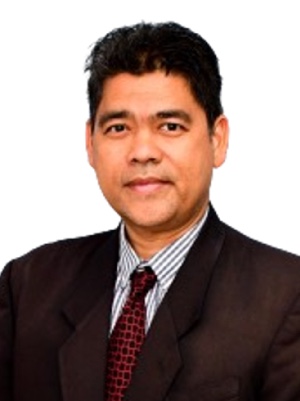
Golf Injuries and Research Opportunities
Abstract Golf is an enjoyable game associated with health and well-being benefits. Nevertheless, it is not without injury risk. The most common injuries are of the spine (lower back), elbow and hand/wrist. Most are related to chronic overuse mechanisms, while few are acute and traumatic. There are ways to prevent and treat these injuries. Strengthening the core muscles for example, may reduce the risk of injury. Meanwhile, treatment with injectable biologics like platelet rich plasma for muscle strain may help recovery. This talk aims to share with the audience on the common golf injuries and research opportunities in this field.
Biography
Dr Halim is a Professor in Sports Medicine from the Faculty of Medicine, University Malaya. He is a lecturer in Master of Sports Medicine program in the University, and practices as a consultant sports physician in Universiti Malaya Medical Centre and UM Specialist Centre. He graduated as a physician in 2005 from Universiti Malaya with Master in Sports Medicine (with Distinction). Prof. Halim is a medical panel/committee member in several international sports bodies including Asian Football Confederation (AFC), Badminton World Federation (BWF), Federation of International University Sports Federation (FISU), Football Association of Malaysia (FAM) and was a visiting specialist for the National Sports Institute of Malaysia (2006-2017). He was also the President of Malaysian Association of Sports Medicine for 3 terms (2018-2024). He has great experience in both sports medicine and sports science, and currently is the Dean of Faculty of Sports and Exercise Science, and the Deputy Commandant of the Reserve Officer Training Unit (ROTU) of Universiti Malaya. He has a diversified interest in research, mainly in sports and exercise medicine, biomedical engineering and sports science in which he authored a number of articles with colleagues. He is the Principal Investigator in several research projects.
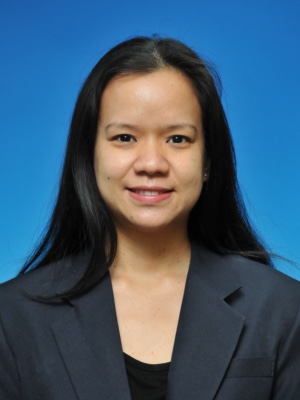
Designing Materials for Regenerative Medicine
Bio-inspired materials for regenerative medicine are designed to mimic the structure, properties, and functions of natural biological materials to enhance healing and tissue regeneration. These materials draw inspiration from various biological sources, such as the extracellular matrix, natural polymers, and biominerals, to create scaffolds that support cell growth and tissue formation.
Recent advancements in biomaterials have further enhanced the development of bio-inspired materials by enabling the creation of nanoscale structures that improve drug delivery and cellular interactions. Furthermore, the integration of bioactive molecules and stem cells into these materials can provide a more dynamic environment for healing.
Overall, bio-inspired materials represent a promising frontier in regenerative medicine, aiming to improve patient outcomes by facilitating the body’s natural healing processes and promoting the regeneration of damaged tissues. Future research will likely focus on enhancing the functionality and adaptability of these materials for a wider range of clinical applications.
Biography
Farina Muhamad is currently a Senior Lecturer in the Department of Biomedical Engineering, Faculty of Engineering at University Malaya. She joined University Malaya after finishing her PhD in the laboratory of Professor Molly Stevens in the Institute of Biomedical Engineering at Imperial College London. Her PhD work focused on electrospun nanofibers in Tissue Engineering applications. Currently in University Malaya, her research works integrate biology, biochemistry, biomaterial science and engineering approaches to address important scientific questions relating to human health, focusing on nanomaterials and biomaterials, cell and bone tissue engineering.
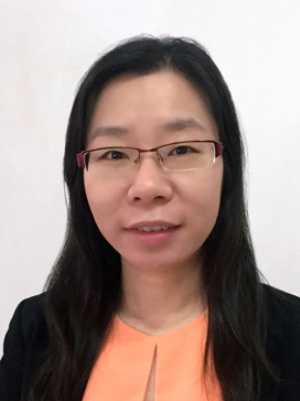
Integrated Nanosensor Technologies for Molecular Analyses of Circulating Biomarkers
The growing emphasis on personalized medicine significantly increases the need to analyze key molecular markers. In comparison to tissue biopsies, circulating biomarkers (liquid biopsies) can be conveniently and repeatedly obtained from biofluids with minimal complications. Extracellular vesicles have recently emerged as a promising circulating biomarker. Extracellular vesicles are nanometer-sized membrane vesicles actively shed off by cells and possess unique advantages: they abound in biofluids and harbor diverse molecular contents. In this talk, I will describe various nanosensor systems we have developed for quantitative analyses of diverse circulating biomarkers. These technologies integrate advances in device engineering, nanomaterial sciences and molecular biology. By enabling rapid, sensitive and cost-effective detection of circulating biomarkers, these platforms could significantly expand the reach of preclinical and clinical research, in informing therapy selection, rationally directing trials, and improving sequential monitoring to achieve better clinical outcomes.
Biography
Dr Huilin Shao is Dean’s Chair Associate Professor, Department of Biomedical Engineering, and Principal Investigator, Institute for Health Innovation & Technology (iHealthtech), National University of Singapore. Dr Shao received her BA from Cornell University, with a double major in Biological Sciences and in Physics. She completed her dual PhD (Biophysics) at Harvard University and PhD (Medical Engineering) from Harvard-MIT Health Sciences and Technology (HST). Her research focuses on developing integrated nanotechnology platforms for molecular analyses of novel biomarkers. She has pioneered multiple technologies to advance molecular diagnostics. Her work has been published in top journals such as Nature Biotechnology, Nature Nanotechnology, Nature Medicine, Nature Biomedical Engineering, Nature Communications and highlighted in major reviews and popular news media. In recognition of her achievement, Dr Shao has received multiple awards, including James Mills Pierce Award, A*STAR Independent Fellowship, NUS Early Career Research Award, the L’Oreal For Women in Science National Fellowship, Springer-Nature MINE Young Scientist Award, and Singapore Presidential Young Scientist Award.
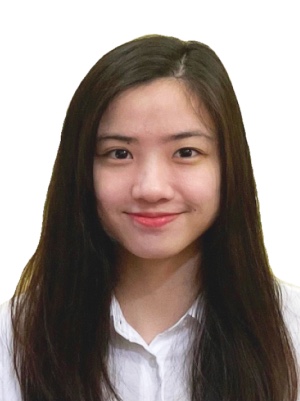
Advancing Knee Osteoarthritis Diagnosis with Deep Learning: Bridging EMR and AI for Enhanced Clinical Outcomes
Osteoarthritis in the knee, a prevalent cause of disability, necessitates advanced diagnostic methodologies. Traditional manual diagnosis and previous research efforts utilizing ultrasound, CT scans, X-rays, and 2D MRI images are limited by labour intensity and the inability to fully capture the knee joint’s 3D complexity. To address these challenges, 3D deep learning models are applied to 3D MRI volumes for OA diagnosis, focusing on both segmentation and classification tasks. The exploration of 3D deep learning models aims to enhance MRI-based osteoarthritis assessment and supports their integration into clinical workflows to improve diagnostic accuracy and efficiency. The use of 3D deep learning models has shown significant advancements in achieving precise and reliable osteoarthritis diagnosis, ultimately contributing to better clinical decision-making and improved patient outcomes. This research highlights the importance of incorporating 3D imaging techniques in osteoarthritis diagnostics and sets the stage for future innovations in the field.
Biography
Pauline Yeoh Shan Qing is currently a Postdoctoral Research Fellow in the Medical Imaging Laboratory at the Department of Biomedical Engineering, Faculty of Engineering, Universiti Malaya. She recently completed her Doctoral Degree through the Fast Track PhD Program, graduating on time with her thesis awarded Distinction. Her doctoral research focused on artificial intelligence applications in medical imaging. At Universiti Malaya, her current research encompasses digital healthcare, including intelligent health diagnostics, clinical decision support systems, medical imaging, and healthcare analytics. Her work aims to bridge the gap between engineering and medicine through computational intelligence in healthcare applications.


